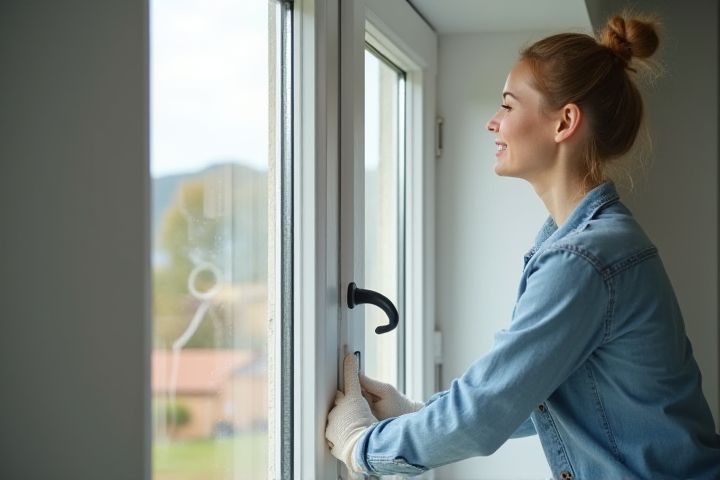
Replacing house windows is essential when you notice drafts, condensation between panes, or visible damage like cracks and warping. If your energy bills have increased, outdated windows may not be providing adequate insulation, making replacement a cost-effective choice for improving efficiency. Windows typically have a lifespan of 15 to 30 years, so if yours are nearing that age, it might be time to consider an upgrade. You should also evaluate the aesthetic appeal; old windows can detract from your home's curb appeal and decrease property value. Regular inspections every few years can help determine whether replacement is necessary, ensuring safety and comfort in your living space.
When To Replace House Windows
Increased energy bills
If your energy bills have spiked significantly--often by 10% or more--this could indicate that your house windows are no longer providing adequate insulation. Windows over 15 years old tend to lose their efficiency, allowing drafts and heat loss that drive up heating and cooling costs. You should consider replacement if you observe condensation between panes, which signals seal failure and compromised energy efficiency. Installing new, energy-efficient windows can reduce your energy expenses by an average of 15% to 30%, making it a worthwhile investment for comfort and savings.
Difficulty in operation
Difficulty in operating your house windows often signals the need for replacement. If you find it challenging to open, close, or lock your windows, it could indicate wear and tear or misalignment. Homeowners should consider replacement when the windows are over 15 to 20 years old, as this is the typical lifespan for many types of windows. Prioritizing functionality ensures your windows provide optimal security, energy efficiency, and ease of use, enhancing overall home comfort.
Visible condensation or moisture
Visible condensation or moisture on your windows is a clear signal that it may be time for a replacement. This moisture can indicate a breakdown in the insulating gas seal, which often results in energy loss and higher utility bills. If you notice persistent fogging between the panes or water pooling, it's essential to address this promptly. Upgrading to energy-efficient windows can improve your home's comfort while potentially increasing its value by reducing energy consumption significantly.
Noticeable drafts
Noticeable drafts often indicate the need for window replacement, as they can lead to increased energy bills, sometimes by 10-30% annually. If you can feel air leaking around your window frames or notice significant temperature differences when standing near them, it's time to evaluate their condition. Inspecting your windows for cracks, gaps, or worn-out weatherstripping can reveal underlying issues that compromise your home's insulation. Replacing old windows not only enhances energy efficiency but can also improve your overall comfort and aesthetic appeal in your living space.
Decay or water damage
Signs such as visible decay or water damage on your windows indicate it's time for replacement. Look for wood rot, mold growth, or peeling paint, which can compromise the window's integrity. In areas experiencing heavy rainfall, check for leaks or water stains around the frame and sill, revealing potential moisture infiltration. Replacing damaged windows can enhance energy efficiency, potentially saving you 15-30% on heating and cooling costs.
Increased outside noise
If you notice an increase in outside noise levels, such as traffic, construction, or neighborhood disturbances, it may be time to replace your house windows. Windows with inadequate soundproofing allow more external noise to infiltrate your home, impacting your comfort and peace. Double-glazed or triple-glazed windows can significantly reduce sound transmission, offering a quieter living environment. To evaluate your current windows' effectiveness, consider measuring the decibel levels inside your home compared to the outside; a noticeable difference indicates a need for replacement.
Physical damage
Physical damage is a key indicator that it's time to replace your house windows. Look for noticeable cracks, gaps, or warping; even small defects can lead to increased energy costs and security risks. If you observe condensation between the panes, this signifies a seal failure, compromising insulation. Windows more than 15-20 years old are also more susceptible to damage, requiring vigilant inspections to maintain your home's integrity and efficiency.
Single-pane glass
Single-pane glass windows generally require replacement when their age exceeds 20 years or if you notice significant drafts, condensation between panes, or visible cracks. Energy efficiency decreases dramatically with single-pane windows, leading to an average increase in heating and cooling costs by 10-25%. Your comfort and safety are at stake if the frames are rotting or showing signs of decay. Upgrading to energy-efficient double or triple-pane windows can improve insulation and reduce utility bills by up to 30%.
Outdated style
Replacing outdated style windows can significantly enhance your home's aesthetic appeal and energy efficiency. If your windows are more than 15 years old or exhibit signs of peeling paint, warping, or condensation between the panes, it may be time for an upgrade. Modern window designs not only offer improved functionality but also come in various styles that can complement your home's architecture, potentially increasing its resale value by up to 10%. Consider the benefits of replacement windows, such as better insulation properties that can reduce your heating and cooling costs by 10 to 25% annually.
High maintenance efforts
High maintenance efforts can indicate that it's time to replace your house windows, especially if you're engaging in regular repairs or treatments every year. Windows that require frequent repainting, caulking, or have persistent drafts can lead to increased energy bills, potentially costing you 10-25% more in heating and cooling. If your windows have noticeable damage such as warping or rot, or if you find yourself spending hours attempting to improve their functionality, these are strong indicators for replacement. Prioritizing modern, energy-efficient windows will not only reduce maintenance tasks but can also enhance your property value and improve your home's overall comfort.
